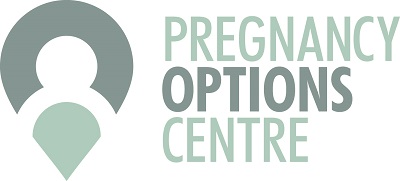Mental Health and Pregnancy

As part of World Maternal Mental Health Day (4th May) representatives from HEH Mind and Pregnancy Options Centre sat down to have a conversation about pregnancy mental health and some of the support that’s available from the two charities.
Four questions were put to each charity to find out as much as possible about their insights and support.
Four questions with HEH Mind
1. How will maternity affect my mental health?
Maternity can affect us all in different ways. Pregnancy is often a very happy and exciting time, but not everyone feels this way. We may have mixed, or even negative, feelings about being pregnant. We may find it more difficult to cope with the changes and uncertainties which pregnancy brings.
We can worry about how we will cope with pregnancy or having a baby. It’s normal to feel stressed or anxious at times. When you are pregnant, it is common to worry about changes in our roles, relationships, pregnancy, childbirth and support.
As many as 1 in 5 women have mental health problems in pregnancy or after birth, with depression and anxiety being the most common mental health problems in pregnancy.
Whether we experience poor mental health in pregnancy or not, is important to consider and engage in activities and conversations that support our wellbeing.
2. How can someone support their own wellbeing during pregnancy?
It is just as important to have treatment for mental health problems as it is for physical health problems in pregnancy. The best treatment for us will depend on our own symptoms or illness. Wellbeing and crisis services can offer support, like those available at HEH Mind and Pregnancy Options Centre. Additionally, it is valuable to be able to develop our own wellbeing activities and conversations. These could include:
- Making time each week to do something which you enjoy; that maybe walking, reading, listening to music.
- Meditation or mindfulness; either through a class or an app such as Headspace.
- Accepting help when it is offered. Particularly with tasks like housework and shopping.
- Keeping active through exercise. It can be helpful to ask your midwife about suitable exercise in pregnancy.
- Discuss any worries you may have with your family, friends, your midwife or GP.
- (Try to) Get regular sleep.
- Build a network of support, this could be for practical tasks or for emotional or mental support.
- Make a Wellbeing Plan – this helps you to start thinking about the support you might need or want in your pregnancy and after the birth. Consider the things that help you to feel happy and positive, and also the things you may find more difficult or would like support with.
3. What are perinatal mental health problems?
A ‘perinatal’ mental health problem is one that we can experience any time from becoming pregnant up to a year after we give birth.
Having a baby is a big life event. It’s natural to experience a range of emotions during pregnancy and after giving birth. But if any difficult feelings start to have a big effect on our day-to-day life, we might be experiencing a perinatal mental health problem. This may be new mental health problem, or an episode of a problem you’ve experienced in the past.
If someone has recently had a baby and is struggling with their mental health, it may seem difficult to talk openly about how you’re feeling. We can or might feel pressure to be happy and excited, to be on top of everything, or worried about our parenting.
If we are finding things difficult, it is important ask for help or support. This could involve a coffee and chat with a friend or accessing a service. There is a variety of services and activities to support our wellbeing. We have a ‘Perinatal and Postnatal Mental Health’ booklet that can be downloaded from our website.
4. Where can someone go to find out more?
HEH Mind delivers wellbeing services during the weekends and crisis services every evening. All of our services are free to access. Find out more about our wellbeing services at our website, or complete a self-referral form or call us on 023 92498916 (daytime number).
We would also encourage anyone struggling to visit their GP. If you are not sure how to get the most from your appointment, we have a ‘Talking to your GP’ booklet that can be downloaded from our website.
Four questions with the Pregnancy Options Centre
1. What does the Pregnancy Options Centre do?
Pregnancy Options Centre provides free, non-directive support and counselling for anyone facing an unplanned pregnancy, giving them time and space to explore their thoughts and feelings in a safe non-judgemental environment. We also provide longer-term emotional support for those struggling following an abortion or dealing with pregnancy loss. Our service covers the area between Littlehampton and Portsmouth, having dedicated counselling spaces in Chichester and Portsmouth.
Partners and family members often benefit from their own support when they are faced with a loved one who is dealing with these issues. Pregnancy Options Centre caters for this too and can see partners and family members too.
2. Is it normal to be feeling isolated, low or sad following a pregnancy loss?
Everyone deals with things differently and there is no right or wrong way to feel after a miscarriage or abortion, but you may experience feelings of sadness and isolation. Some people may find it hard to understand why they feel this way, but please remember that you are not alone in your feelings. Try to be honest and open up to those who you feel safe to do so with and contact us if you feel that you would benefit from further support from one of our trained practitioners.
3. How can I look after myself and my mental health after a pregnancy loss?
Simple things like mindfulness, gentle exercise and fresh air can help. Try to recognise your emotions, and remember grief affects us all differently, so however you feel is completely acceptable. Writing down your feelings may help if you are feeling overwhelmed with emotions. Reach out to family and close friends if you feel able to. Finally, asking for more specialist help if you feel that you need it is so important. Our practitioners are trained to listen and give more practical and emotional support, looking at key topics life grief, anger, depression, guilt and shame.
4. How can I support someone else after they’ve experienced a pregnancy loss?
Even at the earliest stages of pregnancy, women and their partners often feel a real connection to their pregnancy and may grieve for the future they had imagined. It can be hard to find the right words to comfort someone who is experiencing this type of grief, but many people say that just having their loss acknowledged is helpful. Some women who have experienced an abortion may have mixed emotions, such as relief and a sense of loss. Just listening to how they are feeling and know that you don’t need have ‘the answers’ is so valuable.
Listen to them when they are ready; simply saying “I am here to listen” is a good start. Avoid questions about whether they are “better now” as grief has no set time limit. The key to being supportive starts with recognising when someone who is struggling after a pregnancy loss is grieving, and to say something that acknowledges that loss. “I can see that this is very difficult for you and your loss has impacted you”.
Sometimes we can say things we think may help people feel better, such as: “You can always get pregnant again”, “It wasn’t meant to be” or “At least you have other children” but these are examples of thing not to say and may make those grieving after pregnancy loss feel worse.
Contact us

World Maternal Mental Health Day (4th May) can be a prompt to check in on a friend, colleague, family member to see how they are doing. It can also be an opportunity to reflect on ourselves and how we are supporting our own wellbeing.
To find out more about HEH Mind and Pregnancy Options Centre please use the links and contacts below.
Pregnancy Options Centre
pregnancyoptionscentre.org.uk | 01243 784177 or 07843543792 | [email protected]
HEH Mind
easthantsmind.org | 023 92498916 | [email protected]
Posted on: 3rd May 2023








